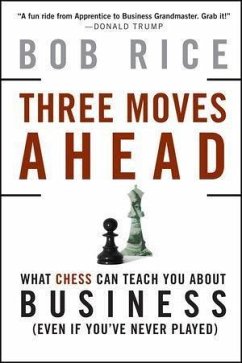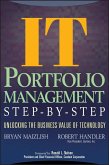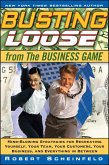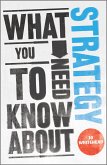Three Moves Ahead shows how classic chess strategies address the #1 problem of Information Age executives: how to move quickly in the face of incalculable complexities and unexpected change. This witty and novel guide, written for non-players, is packed with scores of real-world examples showing how top CEOs use Grandmaster techniques to win on Wall Street. Readers will see how a "strong square" strategy drove Adobe's rise from niche player to industry giant, as well as Western Union's success through a hundred years of technology changes. They'll learn how AOL has played a crucial "exchange sacrifice" to revive its fortunes, and how Google is taking turf from Microsoft with a "minority attack." Most importantly these days, they'll find out "what to do when you don't know what to do," and avoid the fate of companies like Polaroid, Gateway, and our dearly departed Ma Bell. "A fun ride from Apprentice to Business Grandmaster. Grab it!"--Donald Trump Bob Rice (Short Hills, NJ) was a long-time partner at Wall Street's prestigious Milbank, Tweed, Hadley, and McCloy. He left to start a software venture that was purchased by Viewpoint, a NASDAQ company of which he later became CEO. He is currently a Managing Partner of Tangent Capital, which structures financial products for hedge funds, and a member of the "New York Angels" venture finance group. Along the way, Bob served as Commissioner of the Professional Chess Association, founded the Wall Street Chess Club, ran numerous international chess events and produced a successful "Speedchess" series for ESPN.
Dieser Download kann aus rechtlichen Gründen nur mit Rechnungsadresse in A, B, BG, CY, CZ, D, DK, EW, E, FIN, F, GR, HR, H, IRL, I, LT, L, LR, M, NL, PL, P, R, S, SLO, SK ausgeliefert werden.









